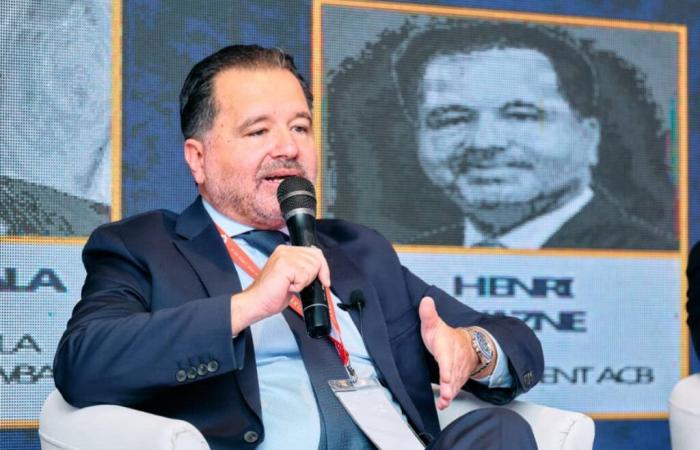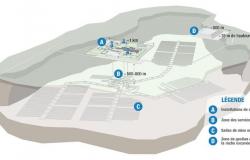On the sidelines of the MAKUTANO 2024 Business Forum in Kinshasa, Henry Wazne, Managing Director of Sofibanque, looks back on the performance of his bank, now ranked fourth in the Congolese market. In this interview, he addresses the major challenges of the DRC’s banking sector: exit from the FATF gray list, dedollarization of the economy and regional financial integration.
How does Sofibanque present itself?
Sofibanque, created in 2010 in Kinshasa, is today one of the main banks in the Democratic Republic of Congo. According to the latest official figures, in just ten years it has become the fourth largest bank in the country in terms of balance sheets, with a total of around $1.2 billion. Our results are solid since net banking income reached approximately $28 million and net banking income is up sharply, approaching $70 million. We also boast one of the best solvency and liquidity ratios on the market. We won the “Bank Game Changer” award from Forbes in 2023 not only thanks to our performance but also thanks to our commitment to the development of the country.
Last October, the plenary of the Financial Action Task Force (FATF) looked at the progress made by the Congolese authorities to complete their action plan within the agreed deadline in order to remove the DRC from the gray list of countries under reinforced surveillance. In what way, in your opinion, does this list constitute an obstacle or an engine for the DRC?
First of all, being placed on the gray list is not a definitive sanction. Besides, when we were put on this list, it did not mean that we were on the white list before. The treatment of the country was no better. Today, being on the gray list at least gives us a road map, a set of actions to implement. Progress has been made and more must be made. I also learned with satisfaction that in 2023, of the 23 required measures, 17 are already being implemented. Cenaref and the Central Bank are working tirelessly to resolve the remaining issues by May 2025.
What should be the role of the banking sector in removing the DRC from this list?
We, of course, have a role to play. I speak here as First Vice-President of the Congolese Banking Association. The banking sector has already made a lot of effort to comply with international standards. We have considerably professionalized the sector and established strong collaboration with the Central Bank and Cenaref, which supervises us in the fight against money laundering and terrorist financing. This collaboration is essential to achieve the objectives set by the FATF.
How is your bank adapting to meet local and international compliance requirements, particularly with regard to international and local standards and regulations?
We have invested significantly in our human resources, training our staff, and engaged consultancies based locally and internationally. We have also strengthened our IT systems and our prevention, filtering and list management tools. We continue to invest, including in artificial intelligence and other technologies, to provide regular updates to ensure compliance. There is still much to do, and we are determined to continue these efforts.
What, in your opinion, is delaying the dedollarization of the economy despite the numerous measures taken by the authorities?
Much of the problem lies in the terminology. The term “dedollarization” is often frightening, but it is not a question of prohibiting the use of the dollar. We are fortunate to have a stable currency that allows us to transact in dollars, and this presents an opportunity. The objective is not to ban the dollar, but rather to promote the use of the Congolese franc. This could involve incentives, such as making transactions in dollars more expensive than those in francs, or limiting certain transactions to a specific amount, say $1,500 to $2,000, which could only be settled in Congolese francs. The idea is to promote the use of the franc without prohibiting the use of the dollar.
What are your actions to facilitate intra-African trade?
This is a more complex area. Although there are initiatives to facilitate financial flows between African countries, we are still far from it. The volume of these transactions represents a tiny part of our financial exchanges. However, I think African countries still have a lot of work to do to strengthen these exchanges. The leadership of the DRC can play a vital role in this process. Moreover, in many recent rankings, Congolese banks appear more, which demonstrates the growing influence of the DRC. We must take advantage of these strengths. Congolese banks are a real lever for the economy, and it is important to support and encourage them in this process.





